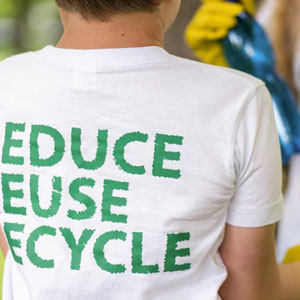Responsible Consumption - concept

MR. Manoj K. Jha
247
Feb 05, 2023
Responsible consumption is a concept that refers to making conscious choices about the products we buy and use, taking into account their impact on the environment, society, and our own health. It is about being mindful of the resources and energy used in the production of goods, and the waste generated from their use and disposal. In an age where consumerism drives the global economy, it is more important than ever to consider the consequences of our purchasing decisions.
The first step in becoming a responsible consumer is to educate ourselves about the products we use. This includes understanding the materials used in production, the processes involved, and the consequences of those processes. For example, it is important to know the impact of fast fashion on the environment and the exploitation of workers in many clothing production facilities. In addition, it is also essential to be aware of the toxic chemicals used in the production of many common household goods, such as cleaning products and personal care items.
Once we have a better understanding of the products we use, we can then make more informed decisions about what we buy and use. This might mean choosing products that are made from sustainable materials, are produced through ethical manufacturing processes, and are packaged in environmentally friendly ways. It may also mean opting for products that have been certified as fair trade, organic, or cruelty-free.
Another aspect of responsible consumption is reducing waste. This includes reducing the amount of packaging we use, reusing products instead of buying new ones, and recycling as much as possible. We can also choose products that are designed to last longer, such as durable clothing or high-quality appliances, instead of disposable items. In addition, we can also reduce our food waste by planning our meals and purchasing only what we need.
Responsible consumption also extends to the way we use products. For example, we can conserve energy by turning off lights and electronics when they are not in use, and by using energy-efficient appliances. We can also reduce our carbon footprint by choosing to walk, bike, or take public transportation instead of driving, and by eating a plant-based diet.
Finally, responsible consumption means being an active participant in creating a better world. This can involve supporting companies that prioritize sustainability and ethics, and advocating for change through our purchasing decisions. We can also vote with our wallets by choosing to support companies that are committed to reducing their environmental impact, and by investing in companies that prioritize sustainability and social responsibility.
In conclusion, responsible consumption is about making conscious choices about the products we buy and use. It is about being mindful of the resources and energy used in production, the waste generated from use and disposal, and the impact of our actions on the environment and society. By taking small steps towards responsible consumption, we can create a better world for ourselves and future generations.








